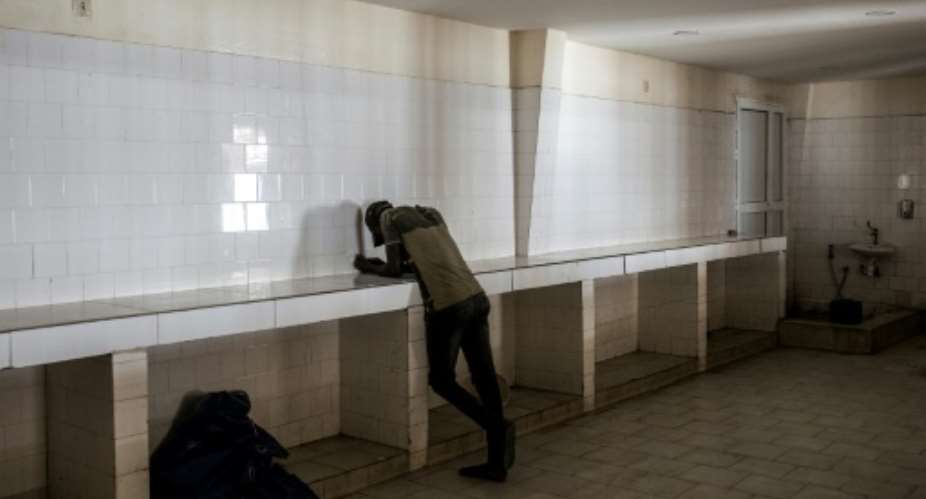On a usually bustling wharf in Senegal's capital Dakar, a young fishmonger named Galaye Sarr asks God to lift the "curse" of the coronavirus.
He and thousands of others in the poor West African country are suffering the effects of coronavirus restrictions on the lucrative fish trade.
Senegal's fishing industry is one of its largest, employing around 53,000 people directly and over half a million people indirectly, according to the UN's Food and Agriculture Organization (FAO).
Fish is also one of the country's top export earners, with Europe -- its economy now slammed by the coronavirus pandemic -- one of its principal markets.
 Exports of fish have plummeted because of the coronavirus crisis -- fewer boats are going out, and fish that had been earmarked for export are being sold locally for half the price, or kept in cold storage until they find a local buyer. By JOHN WESSELS (AFP)
Exports of fish have plummeted because of the coronavirus crisis -- fewer boats are going out, and fish that had been earmarked for export are being sold locally for half the price, or kept in cold storage until they find a local buyer. By JOHN WESSELS (AFP)
Senegal has announced an anti-virus dusk-to-dawn curfew to curb the spread of coronavirus, which along with flight restrictions and blow to European demand, has hit fish exporters hard.
"Now we sell less, in less time," said Sarr, 23, adding that the local markets were already saturated and prices were down.
 Business is so poor that boxes normally used by fishing boats to freeze their catch are being stored. By JOHN WESSELS (AFP)
Business is so poor that boxes normally used by fishing boats to freeze their catch are being stored. By JOHN WESSELS (AFP)
Ordinarily, Sarr would buy catches from fishers who ply the Atlantic in multicoloured boats, known as pirogues.
He would then sell the fish on to processing plants, which package the product for export.
Sarr points to piles of refrigerated containers in a cold-storage room by the wharf.
"We're living through an ordeal here. Everybody is sitting around, we don't have anything to work with," he said.
"Maybe one day God will lift this curse," Sarr said, referring to the virus.





 April 20: Cedi sells at GHS13.63 to $1, GHS13.06 on BoG interbank
April 20: Cedi sells at GHS13.63 to $1, GHS13.06 on BoG interbank
 Dumsor: I'm very disappointed in you for messing up the energy sector — Kofi Asa...
Dumsor: I'm very disappointed in you for messing up the energy sector — Kofi Asa...
 Dumsor: Instruct ECG MD to issue timetable and fire him for lying — Kofi Asare t...
Dumsor: Instruct ECG MD to issue timetable and fire him for lying — Kofi Asare t...
 Ashanti region: Road Minister cuts sod for 24km Pakyi No.2 to Antoakrom road con...
Ashanti region: Road Minister cuts sod for 24km Pakyi No.2 to Antoakrom road con...
 Train crash: ‘How could any normal person leave a car on rail tracks?’ — Frankli...
Train crash: ‘How could any normal person leave a car on rail tracks?’ — Frankli...
 Train crash: Driver of abandoned vehicle not our branch chairman nor secretary —...
Train crash: Driver of abandoned vehicle not our branch chairman nor secretary —...
 Kenya pays military homage to army chief killed in copter crash
Kenya pays military homage to army chief killed in copter crash
 US agrees to pull troops from key drone host Niger: officials
US agrees to pull troops from key drone host Niger: officials
 Mahama vows to scrap teacher licensure exams, review Free SHS policy
Mahama vows to scrap teacher licensure exams, review Free SHS policy
 Government will replace burnt Madina shops with a new three-story, 120-store fac...
Government will replace burnt Madina shops with a new three-story, 120-store fac...
